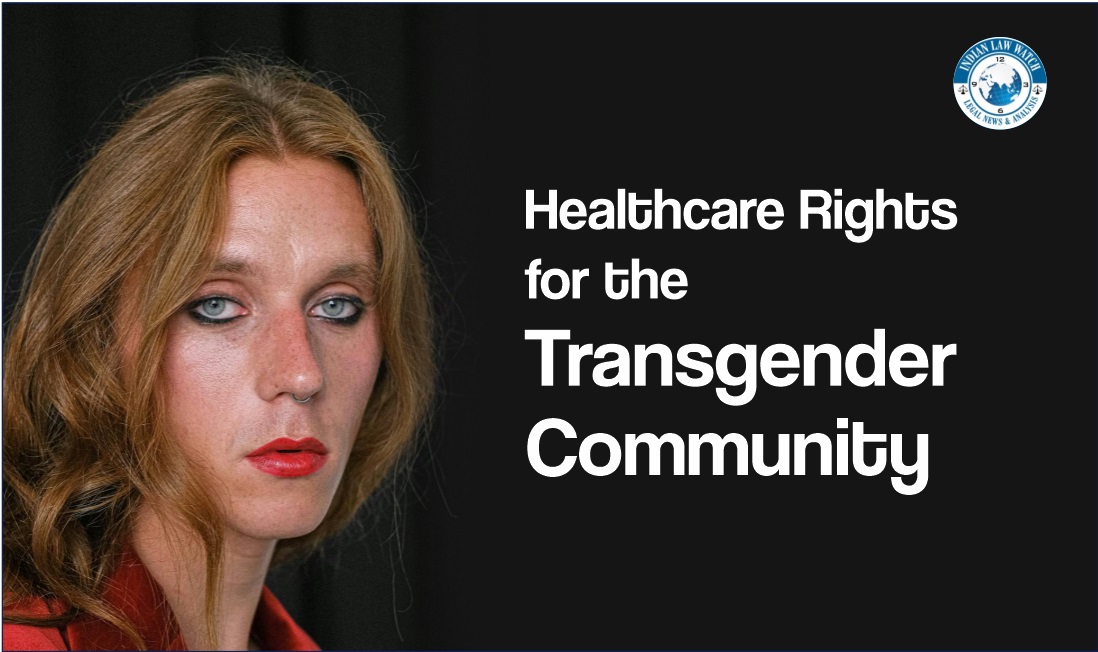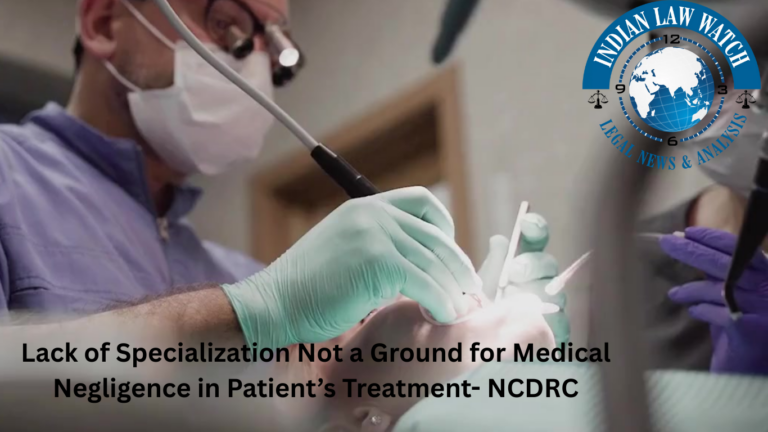

The entitlement to healthcare is a core human entitlement delineated in international human rights agreements and likewise acknowledged as an inherent entitlement of every Indian citizen, deemed integral to the right to life under Article 21 of the Constitution. Nevertheless, the extent to which this entitlement materializes for transgender individuals remains a subject of contention. It is plausible to assert that these individuals encounter notable obstacles in obtaining crucial healthcare services. Prejudice, bias, and an inadequate grasp within the healthcare framework contribute to a daunting and distressing ordeal for this demographic. This article delves into the progress into legal obligation to eliminate these obstacles to establish a healthcare environment devoid of stigma, encompassing not only medical treatments but also physical therapy and holistic social assistance for the transgender community.
Understanding Transgender Health: Challenges and the Importance of Inclusive Care
The population count of ‘Third Gender’ as per Census 2011 was 4,87,803. The transgender community is very high in the states of Uttar Pradesh (28%), Andhra Pradesh (9%), Bihar (8%), West Bengal (6%) and Tamil Nadu (4%). Transgender individuals face unique health concerns due to their gender identity and experiences. Gender dysphoria, the distress from a mismatch between assigned sex and gender identity, can be alleviated by hormone therapy and gender-affirming surgeries. However, discrimination and stress can lead to depression, anxiety, and even substance abuse. Culturally competent mental healthcare is crucial. Physical health considerations include monitoring the impact of hormone therapy, potential for Sexually Transmitted Infections, and cancer screenings tailored to their medical history and transitions. Unfortunately, accessing care can be difficult due to discrimination, lack of knowledgeable providers, and cost. Despite these challenges, transgender individuals are resilient. Supportive environments and mental health services can greatly improve their well-being. Remember, respectful and inclusive healthcare is vital for transgender health.
Following the NALSA judgment, the Indian Parliament passed the Transgender Persons (Protection of Rights) Act, 2019, which prohibits discrimination against transgender persons, including in healthcare settings. The Act also mandates the government to provide comprehensive medical care facilities to transgender persons including sex reassignment surgery and hormonal therapy, reflecting the state’s responsibility to ensure access to necessary health services. Despite these legal provisions, the practical realization of the right to health for transgender individuals often encounters obstacles such as societal stigma, discrimination, and lack of awareness among healthcare providers. It is imperative that healthcare professionals are trained in culturally competent care to address the specific health needs of transgender patients.
The Right to Self-Identification and Legal Recognition
The right to self-identification as one’s chosen gender is emerging as a crucial aspect of healthcare access for transgender individuals. In India, the landmark case of NALSA v. Union of India (2014) 5 SCC 438 recognized the right to self-identification as a fundamental right. This right allows transgender individuals to self-identify their gender on official documents without requiring medical intervention. Legal recognition of a person’s chosen gender identity is crucial for accessing healthcare services that align with their gender identity, such as hormone therapy and gender-affirming surgeries.
The Transgender Persons (Protection of Rights) Act, 2019, is a landmark legislation in India. It defines transgender people broadly and grants them the right to self-identified gender identity. Importantly, the Act prohibits discrimination against transgender individuals in areas like education, employment, and healthcare. To further protect this right, the Act establishes the National Council for Transgender Persons (NCTP) and allows them to obtain a certificate of identity reflecting their chosen gender. Additionally, the Act ensures transgender people can reside with their families and provides punishment for those who violate their rights. Till date the council issues more than 18,000 identity cards and certificate for transgender.
National Council for Transgender Persons
The Transgender Persons (Protection of Rights) Act, 2019, established the National Council for Transgender Persons as a statutory body in India. The main responsibilities of this council include advising the central government on policies, legislation, and projects related to transgender persons, monitoring the impact of policies and programs aimed at achieving equality for transgender individuals, addressing grievances, assisting transgender individuals in filing complaints and prosecuting rights violators. Additionally, the council is charged with ensuring compliance with the Act and addressing challenges faced by the transgender community, such as discrimination. Comprising representatives from various ministries, departments, transgender community members, experts, and activists, the council serves as a platform for the transgender community to raise concerns and for the government to protect and promote their rights.
The establishment of the National Council for Transgender Persons is a significant step towards the inclusion and empowerment of transgender individuals in India, ensuring that their concerns are heard at the highest levels of government and that their rights are an integral part of policy-making and implementation. Recently the council met to discuss the issue of reach of healthcare for transgenders.
Beyond Medical Interventions: Physiotherapy and Social Support
A comprehensive approach to healthcare for the transgender community extends beyond medical interventions. Physiotherapy can play a vital role in addressing physical health concerns associated with gender dysphoria or the effects of hormone therapy and surgeries. For instance, physiotherapy can help with post-surgical recovery, voice training, and management of body image concerns. Furthermore, social support is crucial for the well-being of transgender individuals. Stigma and discrimination often lead to social isolation and mental health problems. Access to mental health services and social support networks specifically designed for the transgender.
International Legal Framework: The Right to Health and Non-Discrimination
International human rights law provides a strong legal foundation for ensuring stigma-free healthcare for the transgender community. The right to health is guaranteed under Article 25 of the Universal Declaration of Human Rights (UDHR) and under Article 12 the International Covenant on Economic, Social and Cultural Rights (ICESCR).This right encompasses not only access to medical services but also the underlying determinants of health, including mental health and social well-being.
Furthermore, the extension of these human rights to Transgenders is an important aspect of international human rights law. The Yogyakarta Principles developed by a group of international legal experts in 2007, specifically address the application of human rights law to sexual orientation and gender identity. Article 17 provides for Right to the Highest Attainable Standard of Health. Even though these are not enforceable as a treaty but they act as directives for policy making in respect of transgenders. The principle of non-discrimination serves as the backbone of the human rights jurisprudence. The Yogyakarta Principle call for states to decriminalize transgender identities, guarantee equal access to healthcare, and prohibit discrimination based on gender identity.

The law is not sufficient by its mere existence but also by its enforcement. The legal landscape for transgender rights is a patchwork across the globe. While the United States lacks a federal law specifically protecting transgender individuals from discrimination, some states offer protections and allow legal gender marker changes. The UK’s Gender Recognition Act allows individuals to obtain a Gender Recognition Certificate for legal recognition of their acquired gender. Countries like Argentina and India have taken strides with legal gender identity recognition, but concerns remain regarding ease of access and societal acceptance. In India, the societal recognition and acceptance, empowerment of third gender and their healthcare concerns are all comprehensive steps towards building an inclusive society. Several hospitals and healthcare facilities in India have taken steps to provide inclusive and sensitive care to transgender individuals. These efforts include providing training to healthcare staff on transgender health issues, establishing gender-neutral facilities, implementing non-discriminatory policies, and offering specialized services tailored to the needs of transgender patients.





